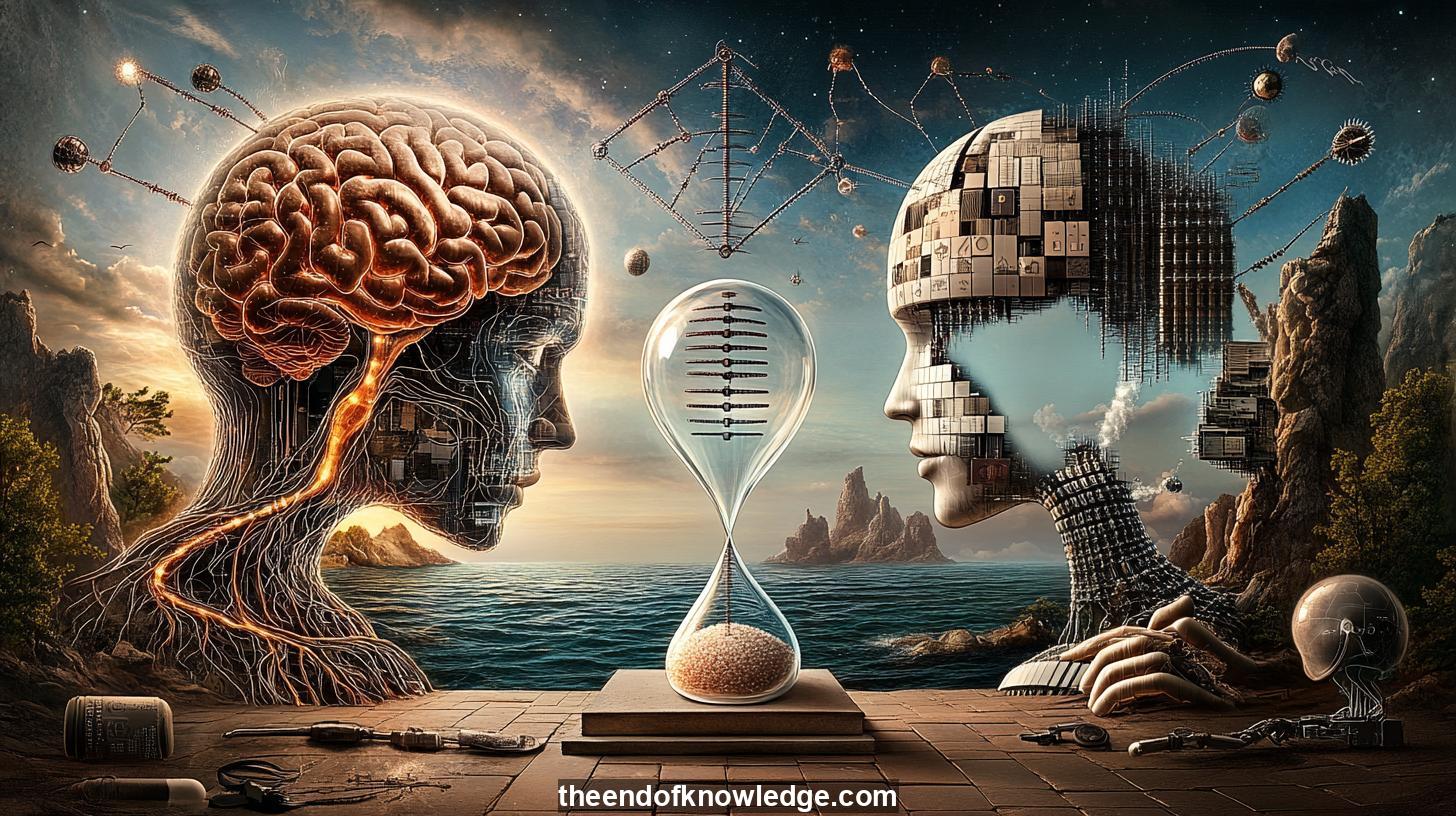 >
>
Concept Graph, Resume & KeyIdeas using DeepSeek R1 :
Resume:
discusses the evolution and current state of artificial intelligence (AI) through an interview with Emilio Soria, a recognized expert in the field. Emilio shares his journey into AI, starting from his early interest in neural networks in the 1990s to his current work in applying AI to complex problems like pharmacokinetics and medical diagnostics. He emphasizes the rapid advancements in AI, particularly in deep learning and generative models, which have transformed the field in recent years. Emilio highlights the importance of patience and persistence in AI development, noting that while current models are powerful, they are still far from true general intelligence.30 Key Ideas:
1.- Emilio Soria began his AI journey in the 1990s, focusing on neural networks and bioseñales.
2.- Early AI models were limited by computational power but paved the way for modern advancements.
3.- Deep learning and generative models have revolutionized AI in recent years.
4.- Emilio emphasizes the importance of patience in AI development, as true general intelligence remains elusive.
5.- Current AI models are powerful but lack human-like consciousness or adaptability.
6.- The ethical use of AI is crucial, particularly in areas like job automation and societal impact.
7.- Education and mentorship are key to preparing the next generation of AI professionals.
8.- Spain faces a growing demand for AI talent, with opportunities for reskilling and upskilling.
9.- Interdisciplinary approaches are essential for advancing AI research and applications.
10.- Hybrid architectures combining symbolic and connectionist AI could unlock future breakthroughs.
11.- Neuromorphic computing aims to emulate biological processes for more efficient AI hardware.
12.- Quantum computing holds promise for solving complex problems in AI.
13.- AI has the potential to transform industries like healthcare, education, and materials science.
14.- The responsible development of AI requires addressing ethical and societal challenges.
15.- AI should enhance human capabilities rather than replace them.
16.- Emilio stresses the importance of understanding AI's limitations and potential.
17.- The future of AI depends on balancing technological advancement with human values.
18.- AI education must bridge the gap between technical and non-technical audiences.
19.- Collaboration between academia and industry is vital for AI innovation.
20.- AI has the potential to address global challenges like climate change and healthcare.
21.- The development of AI requires a deep understanding of mathematics and probability.
22.- Transformative AI applications include drug discovery, medical diagnostics, and materials science.
23.- Emilio highlights the importance of continuous learning in the rapidly evolving AI field.
24.- AI systems lack human-like consciousness and adaptability, despite their advanced capabilities.
25.- The integration of AI into society must be guided by ethical frameworks.
26.- AI has the potential to create new job opportunities and require workforce reskilling.
27.- Emilio advocates for a balanced approach to AI development, combining innovation with responsibility.
28.- The future of AI will depend on advancements in both software and hardware.
29.- AI systems must be designed to complement human intelligence rather than replace it.
30.- The responsible use of AI is essential for ensuring its benefits are equitably distributed.
Interviews by Plácido Doménech Espí & Guests - Knowledge Vault built byDavid Vivancos 2025